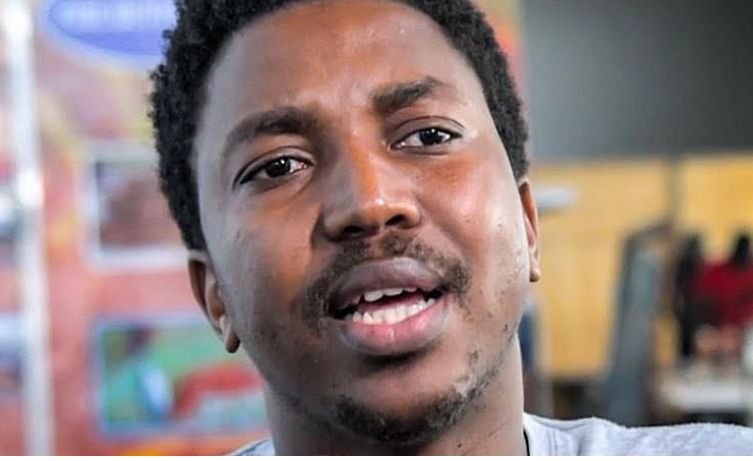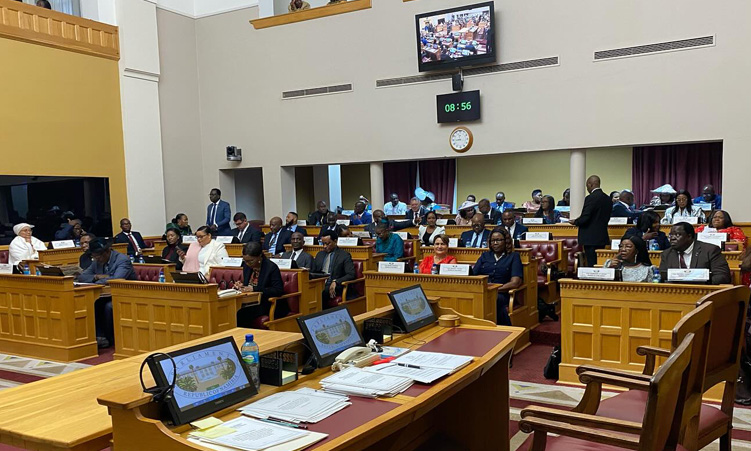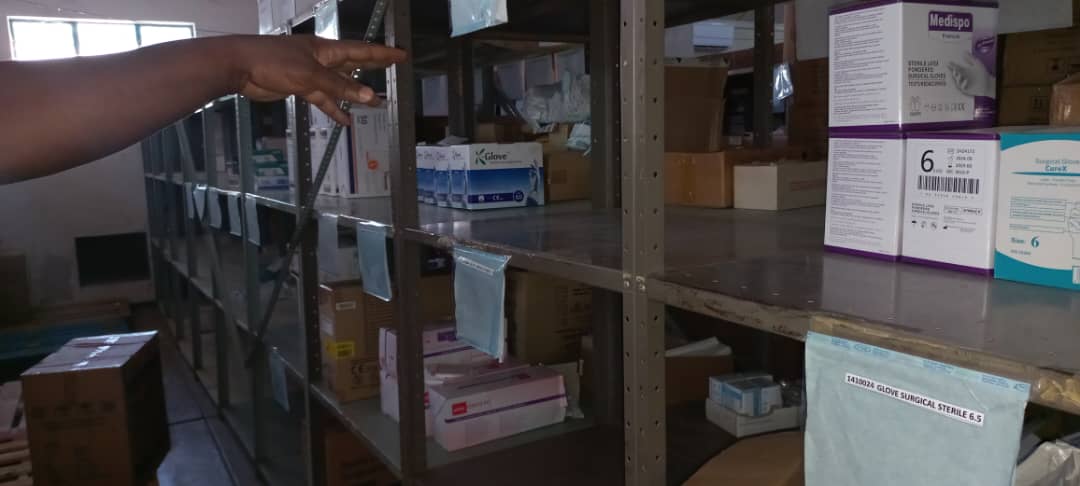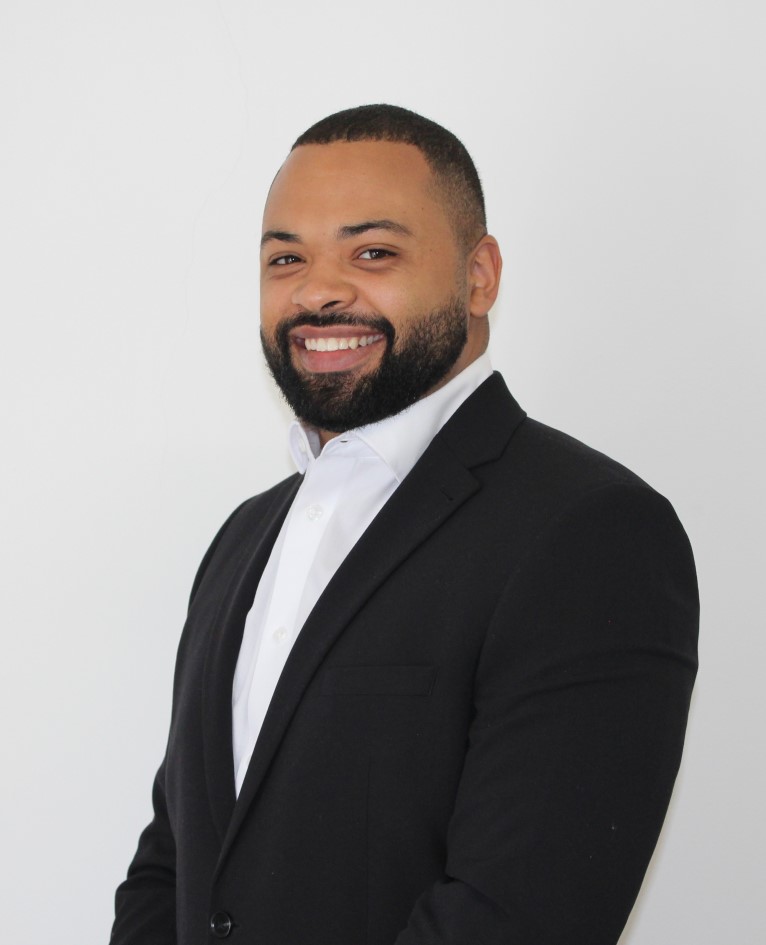THE following is an edited version of a lecture by Tuliameni Kalomoh, Special Advisor to President Hifikepunye Pohamba on Foreign Affairs, delivered at a Pacon-organised function in the capital this week.
Kalomoh’s views are his own and do not represent the Government of Namibia.I wish to thank Pacon for organising this public lecture on the occasion of 100 Anniversary of the birth of Osagyefo Dr Kwame Nkrumah, first President of Ghana. It is gratifying that the African Union has declared 2009 the centenary year in memory of Dr Nkrumah.I also wish to thank Pacon for inviting me along with one of the most indefatigable Pan Africanists in Namibia, Prime Minister Nahas Angula, to speak on the ‘Relevance of Kwame Nkrumah to Africa and Namibia today’. Let me say that Kwame Nkrumah’s ideals of achieving freedom, human dignity and African Unity on the Continent remain as relevant to Namibia and to Africa to day as they were in 1945 when he, together with the legendary Pan Africanist George Padmore organised the Fifth Pan African Congress in Manchester, UK under the Chair of Dr W.E.B DuBois. TWIN STRUGGLESThe Declaration of that Congress which Nkrumah drafted, while re-emphasising the critical importance of Pan Africanism, also clearly and more eloquently articulated the issue of unity among the oppressed African people to fight for freedom and independence.Since his student days in the United States and following his return to Ghana in 1947, Nkrumah pursued the twin struggles for the independence for Ghana and the Unity of West African nascent Independence Movements in order to achieve unity in the sub-region and exert a combined pressure on colonial powers.Following Ghana’s independence in 1957, President Nkrumah organised a conference of all independent African countries and liberation movements in Accra in 1958. Addressing the conference, the first to be held in an independent African country, Nkrumah said: ‘We are here to know ourselves and to exchange views on matters of common interest; to explore ways and means of consolidating and safeguarding our hard-won independence, to strengthen economic and cultural ties between our countries to find workable arrangements for helping our brothers (and sisters) still languishing under colonial rule; to examine the central problem which dominates the world today, namely the problem of how to secure peace’. Thus the name of Kwame Nkrumah has become indelibly linked with the story of the 20th century epic struggle of the African peoples’ freedom from foreign domination and for constructing a United Africa. At the time Nkrumah made that statement in 1958, there were only eight independent African countries: Ghana, Ethiopia, Libya, Tunisia, Morocco, Egypt, Liberia, and Sudan. Today there are 53. And with the exception of Western Sahara, occupied by Morocco, the entire continent is free. Since Ghana attained independence we have achieved the most noble of Nkrumah’s goals: Independence from foreign domination and the formation of the OAU. This fulfilled Nkrumah’s pledge that ‘the Independence of Ghana is meaningless unless linked up to the total liberation of Africa’. But Nkrumah was not only committed to the formal independence with all the trappings of power. AFRICAN UNITYMore importantly he was committed to achieving a meaningful African unity – leading to the formation of a Continental African Government, strengthening mutual economic and cultural ties and securing peace for the African people; peace from hunger and violence which is often inflicted on the people by our own governments. Since the independence of many of our countries, Africa has gone through several phases: the phase of the 1960s could be described as the phase of visionary African Leaders. They had great ideas for the Continent and wanted to improve the wellbeing of their people. They were irrevocably committed to the total liberation of Africa; they were certainly less corrupt and many of them did not have foreign bank accounts; they were committed to fight against poverty, disease and ignorance. Although some of them where less equipped with adequate formal education, they invested heavily in the building of primary and tertiary educational institutions. coups d’ etats AND HOPEThen, came the phase of coups d’ etats, the first of which took place in Togo in 1963. This phase saw an incredible looting on a massive scale of African resources by African dictators such as the late Mobuto in Zaire, now DRC and others, with the complicity of former colonial powers. The next, is the phase that saw the independence of Namibia and the eradication of apartheid in South Africa. This phase also witnessed the mushrooming of democracy in many African countries, new constitutions were enacted with term limits for Heads of State. This phase inspired hope among the African people. They believed that African leaders would now devote their undivided attention and energies to a radical economic and political transformation and accelerate the integration of the Continent. Whether these hopes were realised or disappointed are some of the questions we have to ponder now as we attempt to move forward.For the new and younger generation of African people, the critical questions that we should ask ourselves are: notwithstanding the laudable transformation of the OAU into the AU, have we moved closer to the substance of achieving African Unity? Are we closer to the formation of the African Union Government today than we were at the Cairo Summit of 1964? Are we closer to strengthening our economic and cultural ties? Have we achieved peace on the Continent, peace defined as not the only the absence of conflict or war? ANSWERS?Without doubt African has made a lot of progress. And as Nkrumah said ‘those who judge us merely by heights we have achieved would do well to remember the depth from which we started’. However, notwithstanding progress made, it seems to me that the answers to the above questions are yes and no!Yes, we made progress in constructing the architecture of African Unity through institution building such as the African Union and its subsidiary institutions like the Pan African Parliament, the African Human and People’s Rights and others. Yes we have established Regional Economic Communities (REC), such as SADC, ECOWAS, among others, as the sub- regional pillars for African economic and political integration. And yes, we enjoy peace in the majority of African countries. However, a closer examination of each of these questions will also reveal that while we have achieved much, a lot more needs to be done. NO ROOM FOR COMPLACENCYThere should be no room for complacency. The challenges may appear daunting but are not insurmountable. The establishment of formal institutions should not be a substitute for greater demonstrations of political will to give practical meaning to African Unity. It’s not a display of seriousness of purpose for Africa to create institutions with lofty goals and then deny them the requisite financial and human resources to achieve those goals. And this is exactly the situation facing the African Union. The Union has become disproportionately dependent on donor funding. This is not healthy. And it makes a mockery of our independence and circumscribes our rights to make sovereign decisions to shape our development and integration agenda. Of greater significance is the need for African countries to address, as a matter of urgency and on a sustained basis the many conflicts ravaging some of our countries: the western region of Sudan, Darfur, South Sudan, DRC, Chad and Central African Republic. African leaders need to demonstrate more seriously their commitment to peace, and to deepening and broadening African Unity and equitable economic development; Peace because without it there can be no development: And Unity because most African countries are too small and vulnerable. They cannot be viable economically. And to be successful in promoting economic, political and social development, Africa must promote justice: for peace without justice is hollow. The construction of African Union Government cannot be achieved through slogans and romanticism of Pan Africanism as a philosophy only that should bind us together. Real African Unity and the establishment of African Union Government will require of African Leaders to demonstrate greater political and financial commitment to the Union. Now that freedom and independence have been achieved, do we all subscribe to the common values and principles of democracy and good governance? Have all our governments established democratic institutions with clearly defined separation of powers, i.e. Legislator, Executive and Independent Judiciary? Do all our Governments permit or at least tolerate a functioning, vibrant independent media? And do we hold regular; free, fair and transparent elections organised and managed by credible and independent electoral bodies.Unless African leaders accept without ambiguity and implement these universally accepted principles of democracy and the building of democratic institutions as well as the values of good governance and accountability the dream of Osagyefo Dr Kwame Nkrumah for a Union Government will remain moot for sometime to come.But we should not despair. As Mwalimu Nyerere once said: ‘Of all the sins that Africa can commit, the sin of despair would be the most unforgivable’.Africa has no choice but to work towards greater unity. Obviously stronger unity will not eradicate the current grinding poverty. But it will make it difficult for Africa and its people to be marginalised.Since we are observing the centenary of Osagyefo Dr Kwame Nkrumah let me conclude with the words he used at the opening of Ghana College in 1948, when he urged students ‘to consider laziness a crime’. He went on: ‘Think! Study hard with sustained effort! As never before we want thinkers of great thoughts. We want doers of great deeds’. I believe Nkrumah’s plea to Ghanaian student remains relevant today to all young African people.May the memories of Osagyefo Dr Kwame Nkrumah be immortalised.
Stay informed with The Namibian – your source for credible journalism. Get in-depth reporting and opinions for
only N$85 a month. Invest in journalism, invest in democracy –
Subscribe Now!










